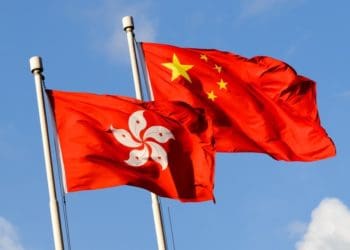Surprisingly, the number of FCPA resolutions that actually involved the Asia-Pacific region sharply declined in 2013, against trend and in apparent contradiction of ubiquitous enforcement attention and coverage. In recent years, at least half of the corporate Foreign Corrupt Practices Act (FCPA) settlement agreements involved business operations in Asia. Extensive discussions of corrupt travel agencies and “princeling” programs in China have dominated the anti-corruption news in 2013. Most Asia-Pacific countries continue to rank in the bottom half of Transparency International’s Corruption Perceptions Index. And yet only one of eight settlements with the Securities and Exchange Commission (SEC) and only three of eleven Department of Justice (DOJ) resolutions involved conduct in the Asia-Pacific. This statistically anomalous year forces us to look beyond the numbers, as it is unlikely to signal a downward trend in light of pending regional investigations. Accordingly, included in this discussion are the non-bribery FCPA cases, several notable declinations, key prosecutions of individuals and a look at some pending investigations.
1. Diebold: On October 22, 2013, the U.S.-based manufacturer of ATMs settled charges that, through its Chinese subsidiary, it had furnished international leisure trips totaling $1.6 million to Paris, Brussels, Amsterdam, Cologne, Frankfurt, Munich, Salzburg, Vienna, Venice, Florence, Rome, Australia, New Zealand, Bali, the Grand Canyon, Napa Valley, Disneyland, New York, Chicago, Washington D.C. and Las Vegas to Chinese employees of government-owned banks in return for $265 million in sales contracts. The trips were falsely recorded as training and were personally approved by Diebold executives, some of whom traveled with the bank employees. Its Indonesian subsidiary also paid for trips and entertainment for employees of government-owned banks in Indonesia. Diebold agreed to a three-year deferred prosecution agreement (DPA), with $25.2 million in criminal penalties, retention of a compliance monitor for 18 months and implementation of rigorous internal controls. The SEC required Diebold to disgorge $22.9 million in profits and prejudgment interest.
Key: This case arose from a voluntary disclosure, but still resulted in significant penalties and imposition of a monitor, a now-infrequently imposed, burdensome and costly sanction. The SEC stated that Diebold was on notice of potential corruption issues, but failed to effectively investigate and remediate, perhaps referring to an $80,000 penalty imposed in 2007 by Chinese authorities for inappropriate trips and gifts to officials. This was the only corporate FCPA settlement involving the Asia-Pacific announced in 2013 by the SEC and DOJ.
2. IBM: On July 25, 2013, a judge approved IBM’s 2011 settlement agreement with the SEC for violations of the FCPA books and records provisions. The charging document alleged misrecorded cash payments, gifts, travel and entertainment totaling $207,000 to government officials in South Korea and China, in return for $54 million in sales. IBM was not fined criminally, but rather agreed to a $2 million civil penalty, $5.3 million in disgorgement and $2.7 million in prejudgment interest. IBM recently disclosed another DOJ investigation seeking information about its global anti-bribery compliance program and specific transactions in Poland, Argentina, Bangladesh and Ukraine.
Key: The judge had held up the settlement for two years, ultimately requiring IBM to file annual reports to the court and the SEC regarding its anti-bribery compliance program.
Non-Bribery FCPA Cases
3. Keyuan Petrochemicals: On February 28, 2013, the China-based, U.S.-listed petrochemical company and its chief financial officer, Aichun Li, settled charges of violating the FCPA’s books and records provisions, as well as other securities laws. This case is not included on the SEC’s list of FCPA enforcement actions, nor is the FCPA referenced in the SEC’s press release or settlement documents because the primary charge against Keyuan was insider trading. However, the complaint states that the company maintained a $1 million off-books account funded through the sale of promissory notes, scrap metal and construction materials as well as fictitious employee reimbursement claims, and used, in part, to fund gifts (including red envelopes, bedding and linens) to Chinese government officials, including local environmental, port, police and fire departments. Keyuan and Li settled by paying the SEC $1 million and $25,000, respectively. Li was suspended for two years.
Key: This is the first FCPA-related enforcement action (although not officially designated as such) against a China-based company. Additionally, it is notable as it arose from a reverse merger investigation, whereby the Chinese company merged with a Nevada shell corporation, thus making it subject to the FCPA as a U.S. issuer.
4. Rino International: On May 15, 2013, China-based, U.S.-listed Rino and its Chief Executive Officer, Dejun Zou, and his wife and Chairman of the Board, Jianping Qiu, settled violations of the FCPA books and records provisions in a case very similar to Keyuan Petrochemicals. Rino had consummated a reverse merger with a U.S. shell company and then failed to maintain accurate books and records, keeping different sets of accounts in China and the United States, the latter reporting income more than 15 times greater than was reported in China. Rino agreed to pay more than $3.5 million in disgorgement of profits and its two executives paid $150,000 and $100,000 in civil penalties, respectively.
Individuals
5. Alstom Executives: In 2013, FCPA charges against four executives of the French power and transportation company, Alstom, were announced in connection with a scheme to bribe a member of the Indonesian Parliament and employees of a state-owned and -controlled power company to obtain a $118 million power plant contract. The various superceding indictments allege that bribes were paid through two consultants, the second hired after the first was found not to be effectively bribing officials. Two of the executives, David Rothschild (former VP of Sales for Alstom USA) and Frederic Pierucci (VP of Global Sales for Alstom USA) pleaded guilty on November 2, 2012, and July 29, 2013, respectively. William Pomponi (VP of Regional Sales for Alstom USA) and Lawrence Hoskins (Senior VP for Asia Region Alstom) are pending trial in 2014. Alstom SA has been under investigation by authorities in France, Switzerland, the United Kingdom, the United States and by the World Bank, in schemes across 15 countries.
Key: Companies operating in multiple nations may face separate enforcement proceedings by the different jurisdictions, aided by multinational law enforcement cooperation. Settlement with one jurisdiction may have collateral consequences in the other jurisdictions, including cross-debarment.
6. Maxwell Technologies Executive: On October 15, 2013, the DOJ released an indictment of Alain Riedo, a senior executive at the Swiss subsidiary of U.S.-based power company Maxwell Technologies. In 2011, Maxwell Technologies had entered into a DPA and SEC settlement requiring an $8 million criminal penalty, a $5.654 million civil penalty, and $700,000 in prejudgment interest, but even more importantly, further cooperation. Mr. Riedo had allegedly been an active participant in a bribery scheme with a state-owned company in China, involving “extra amounts” added to the invoice as commissions which were kicked back to Chinese employees. Maxwell Technologies had discovered the kickbacks in 2002, but allowed them to go on until 2009, with one U.S. executive instructing “that no further emails were to be written about the topic.”
Key: The DOJ and the SEC have continuously warned that they were focusing on the prosecution of individuals, as well as corporations, and in 2013, 14 individuals in five corporate investigations faced charges under the FCPA.
Declinations
7. Zimmer Holdings and Medtronic: As part of a broad FCPA-related investigation of the U.S. health care industry that has probed into the business of multinational pharmaceutical and medical device makers, two U.S. publicly traded device companies this year announced the declination by the SEC and DOJ of investigations for potential violations of the FCPA. Zimmer Holdings, Inc. announced in its 10-K Form on February 27, 2013 that the SEC and the DOJ will not take enforcement action against the company for potential violations of the FCPA in the sale of medical devices in the countries in the Asia-Pacific region where the company operates (China, India, Hong Kong, Taiwan, Thailand, Australia and New Zealand). Similarly, Medtronic, Inc., the world’s fourth-largest medical device company, announced in its 10-K Form on June 24, 2013 that the SEC and the DOJ closed their five-year investigation without pursuing any enforcement action or charges against the company for the alleged corrupt payments to government-employed doctors in Malaysia and a number of countries in Europe.
8. Wynn Resorts Limited: This U.S. publicly traded developer of luxury hotels and casinos announced in its 8-K Form on July 2, 2013 that the SEC had concluded their informal inquiry into allegations that – among other incidents – Wynn Macau, Limited, an affiliate of the company, had made an improper donation of $135 million to the University of Macau Development Foundation in violation of the FCPA. The SEC found no evidence of wrongdoing by Wynn.
Ongoing Investigations
9. GlaxoSmithKline: In June 2013, Chinese authorities commenced an investigation of GSK in Beijing, Shanghai and Changsha based on allegations that more than 700 middlemen and travel agencies had been used to channel nearly $500 million in kickbacks to doctors, hospitals and other groups that prescribed the company’s medicine. As a part of its investigation, the Ministry of Public Security detained four high-level executives of GSK China and arrested at least 18 other employees. For a period of time, Chinese authorities also prohibited GSK’s finance chief for China, a UK national, from leaving China. Across the Pacific, GSK confirmed at the beginning of September that U.S. authorities, who were already investigating GSK for alleged FCPA violations in other countries, have initiated a new line of inquiry into the Chinese bribery allegations.
Key: Numerous other pharmaceutical and medical device companies operating in China have been contacted by PRC enforcement authorities and are reviewing their procedures and practices in light of PRC laws. The GSK investigation has provided insight into PRC civil enforcements and criminal procedures, including detention, arrest, interrogation without legal representation, lack of access to documentary evidence seized by authorities, trial through the media and publicized confessions.
10. JP Morgan Hiring Program: Newspaper reports and SEC filings indicate that the SEC is reviewing the firm’s employment of the children of Chinese government officials to help win business. A leaked government document linked the hiring of the son of the chairman of a state-owned conglomerate to multiple new assignments for JPM and of the daughter of a Chinese railway official to the selection of JPM to provide advice. The various media articles report that JPM has opened an internal investigation, in Hong Kong and throughout Asia, into more than 200 hires, including interns and full-time workers. Other banks and financial institutions operating in the Asia-Pacific have followed suit as many have instituted “sons and daughters” programs to ensure that hiring such well-connected associates is done in compliance with the FCPA, rather than used to give preferences or priority.
Conclusion
While the number of U.S. enforcement cases in the Asia-Pacific region dwindled considerably in 2013, this is a trend unlikely to continue. Given the complexity and potential industry-wide scope of the problems identified in the GSK and JPMorgan investigations, companies operating in this region should remain vigilant in identifying and remedying compliance risks raised by traditional Asian business practices.



 Wendy L. Wysong is a partner at
Wendy L. Wysong is a partner at 









